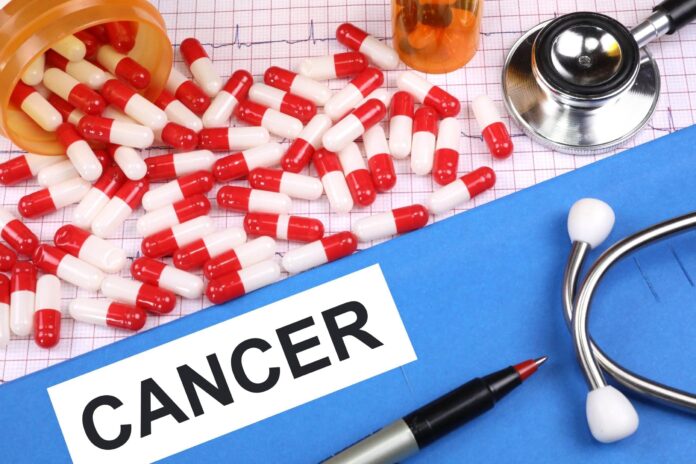Cancer is a group of diseases that can cause almost any sign or symptom that sometimes we don’t notice. There are symptoms of cancer that you can tell the difference in while the others don’t. This second most common cause of death is curable only when detected early. While some cancers develop completely without showing any symptoms that we can think of as cancer’s symptoms. It often has no specific symptoms, so it is important that people limit their risk factors by undergoing cancer scanning.
The signs and symptoms will depend on where the it is, how big it is, and how much it affects the organs or tissues. If it has spread, signs or symptoms may appear in different parts of the body. As cancer grows, it can begin to push on nearby organs, blood vessels, and nerves. Then the pressure will cause some of the signs and symptoms of cancer that you can notice. If the cancer is in a critical area like certain parts of the brain, even the smallest tumor can cause symptoms.
There are also cancer types that won’t cause any signs or symptoms until it has grown quite large. For example, pancreas cancer doesn’t usually cause symptoms until they grow large enough to press on nearby nerves or organs. Treatment works best when cancer is found early while it is still small and is less likely to spread to other body parts. So we have brought you 15 signs and symptoms of cancer that you should be aware of and take action on.
1A Change In Bowel Habits
Actually, most changes in bowel habits are related to your diet and fluid intake but doctors sometimes see pencil-thin stools with colon cancer. Cancer also exhibits continuous diarrhea which is absolutely common with some people who don’t have cancer. Some people with cancer feel as if they need to have a bowel movement. Then still feel that way even if they have already had a bowel movement. If any of these abnormal bowel complaints last more than a few days, they require evaluation.
2Blood In The Stool
Hemorrhoids frequently cause rectal bleeding, but hemorrhoids are so common they may exist with cancer. Therefore, you should have a doctor examine your entire intestinal tract when you have blood in your bowel movements. For some individuals, x-ray studies may be enough to clarify a diagnosis while the studies won’t be needed in some cases. Also, you need to have a routine colonoscopy once you are 50 years old even if there are no symptoms.
3Changes In Urination
Urinary symptoms can include frequent urination, small amounts of urine, and slow urine flow or a general change in bladder function. Also, pain while urinating, blood in urine, or other changes like needing to go more or less often also count. Those can be the symptoms of bladder or prostate cancer, and you should always discuss them with your doctor immediately. Blood in the urine can be caused by a urinary infection, kidney stones, or other causes, so stay cautious.
4Continued Itching In The Anal Or Genital Area
Precancerous or cancerous conditions of the skin of the genital or anal areas can cause persistent itching. Several infections or skin conditions like fungal infections or psoriasis can also cause these symptoms. If the itching does not stop with common medications, you should have your doctor inspect the area.
5Fatigue
It is an extreme tiredness that does not get any better even with plenty of rest. Fatigue is one tricky symptom of cancer because a lot of people feel fatigued for completely different reasons. However, fatigue is an important symptom as cancer grows or at the early stage of leukemia. That is why you should go see a doctor if you suddenly begin to feel tired all the time. Take some time for that to make sure that it is not something serious, regular medical check-up is important.
6Fever
Fever is very common with cancer, but it often happens more after the cancer has spread from where it started. Almost all people with cancer will have a fever at some time especially if cancer or its treatment affects the immune system. Less often, fever may be an early sign of blood cancers like leukemia or lymphoma. If you have a persistent fever, you should see a doctor because it is still an alarming sign if it’s not cancer.
7Hoarseness
If you don’t have any respiratory infection but have a hoarse that lasts longer than 3-4 weeks, you need a doctor. Simple allergy or vocal cord polyps can be the cause of hoarseness, but it could also be the first sign of throat cancer. That is something that you should worry about and take notice of because it somehow develops very fast.
8Lumps
Lumps as signs of cancer can occur in certain areas of the body like the breast, testicle, or near lymph nodes. Most breast lumps are noncancerous tumors such as fibroadenomas or cysts, but you should always go to the doctor. In fact, women are advised to conduct monthly breast self-examinations to make sure that they can track breast cancer on time.
Most men with cancer of the testicle have a painless or uncomfortable lump on the testicle. Some men even have enlarged testicles while other conditions can be infections and swollen veins that can change the testicle’s size. No matter what, you should always go to the doctor as soon as you notice any lump down there. Just like women, men are also advised to conduct monthly testicular self-examinations.
9Pain
This is one tricky symptom of cancer since people have headaches and backaches all the time without any serious health problems. Pain may be an early symptom of some cancers like bone or testicular cancer. A persistent headache that does not get better with treatment can be an early sign of brain cancer or a brain tumor. While back pain can be a sign of colon, rectal, or ovarian cancer. Mostly, pain due to cancer means it has already spread from where it started which is somehow not really good.
10Persistent Cough Or Blood-Tinged Saliva
If you notice that you have been coughing a lot lately or having blood-tinged saliva, you should go to the doctor immediately. These symptoms usually represent simple infections such as bronchitis or sinusitis, but they also could be symptoms of cancer. Such symptoms can be cancer of the lung, head, and neck. In case the cough lasts more than a month or there is blood in the mucus that is coughed up, you should see a doctor.
11Skin Changes
As for skin cancers and other cancers, you will notice changes in skin color and other symptoms. The signs and symptoms include darker-looking skin, yellowish skin and eyes, reddened skin, itching, and excessive hair growth.
12Sores
Sores are so common for people, and that is why most don’t notice until it gets serious. Skin cancers may bleed and look like sores that don’t heal, and that goes the same with persistent sores. Meanwhile, long-lasting sores in the mouth could be a symptom of oral cancer, and you should take action immediately. If you smoke, chew tobacco, or often drink alcohol, go to the doctor right away. Most importantly, sores on the penis or vagina may be either the signs of infection or early cancer.
13Unexplained Anemia
Anemia is a condition in which people have fewer than the expected number of red blood cells in their blood. There are many kinds of anemia, but blood loss almost always causes iron deficiency anemia. Many cancers can also cause anemia, but bowel cancers most commonly cause iron deficiency anemia. That is when you need endoscopy or x-ray studies of your upper and lower intestinal tracts.
14Unexplained Weight Loss
Most people with cancer will lose weight at some point for no known reason, and that is when you should be worried. Unexplained weight loss of 10 pounds or more may be the first sign of cancer. This happens most often with cancers of the pancreas, stomach, esophagus (swallowing tube), or lung. Don’t be happy if you suddenly lose weight without dieting or exercising, that is not a good sign.
15White Patches Inside The Mouth / On Tongue
Smokers and tobacco users should take notice, white patches inside the mouth or white spots on the tongue are the symptoms. They can be a sign of leukoplakia which leads to mouth cancer if not treated on time. So you should always notice any long-lasting mouth changes and go to the doctors or dentists right away.
What Causes Cancer?
No one really knows why cancer grows in certain people, there are some reasons so far including genetics and certain environmental or behavioral triggers. The first reason refers to the genes you were born with that might carry a predisposition for cancer. If a close relative has had breast or colon cancer, you may be more likely to inherit the tendency. But that does not always happen, not every case occurs that way.
The latter reason can cause changes in the body’s cells that push them into a cancerous state. The perfect example is cigarettes which are the factors that increase the risk of lung cancer. More than that, exposure too much to the sun can also increase the risk of cancer. These types of triggers act on the body slowly over time so the cancers don’t show up till the person becomes an adult. That explains why teens don’t get the same types of cancers as adults do.
Bear in mind that cancer is not contagious, so you don’t have to worry about catching it from someone else. You also don’t have to worry if you are going to spread it to another person. Cancer is also never a person’s fault, not unless they smoke too much to the point they develop lung cancer.
If you notice any other major changes in the way your body functions or feels, you should see a doctor. In the case that the changes persist or get worse, you really have to go to the doctor right away. It will be great news if it is not cancer, but any major change in your body is worthy of concern.
Related Post: Healthy Fruits That Decrease Heart Attack Risks




